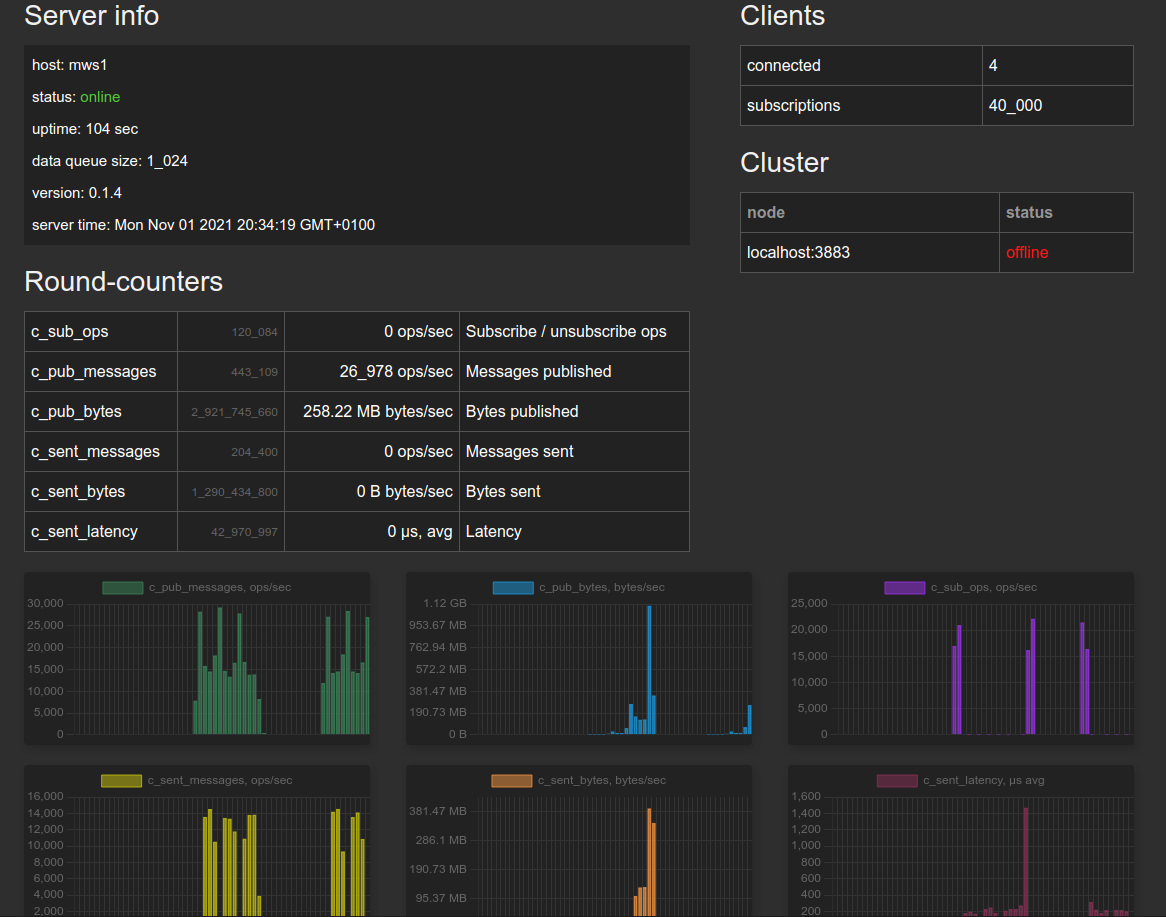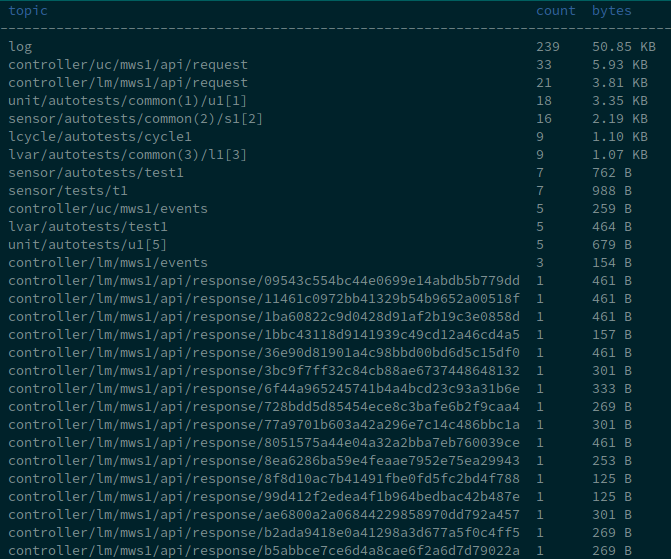PSRT server and clients
Contents
Source code
Primary repository: https://github.com/alttch/psrt/
Rust Cargo crate (the library and async client): https://crates.io/crates/psrt
Other repositories:
Installation (free version)
Use binaries from https://github.com/alttch/psrt/releases.
For Debian/Ubuntu and other deb-based distributions, .deb packages can be used, downloaded either directly or via the apt repository:
curl https://pub.bma.ai/apt/setup | sudo sh
sudo apt-get install psrt
The apt repository contains packages compatible with Ubuntu 20.04 LTS which require OpenSSL 1.1. To enable OpenSSL 1.1 support on newer Ubuntu versions, install the following:
wget http://security.ubuntu.com/ubuntu/pool/main/o/openssl/libssl1.1_1.1.1f-1ubuntu2_amd64.deb
sudo dpkg -i libssl1.1_1.1.1f-1ubuntu2_amd64.deb
Building from source
Install Rust
Build the server and cli:
git clone https://github.com/alttch/psrt/
cd psrt
cargo build --features server,cli --release
# for openssl v3
cargo build --features server,cli,openssl3 --release
Configuration files
If installed manually, get configuration files from https://github.com/alttch/psrt/tree/main/make-deb/etc/psrtd or use files from test-configs directory (need to be edited before use).
If installed from deb-package, configuration files are stored in /etc/psrtd directory.
The official port numbers, assigned by IANA for PSRT are 2873 TCP/UDP. It is recommended to keep these ports on servers to let clients connect / push data using defaults.
Troubleshooting
If any problems occur, try running psrtd with -v argument to get verbose logging in terminal.
The most common problem is timeout disconnect. The server timeout MUST be higher than the slowest expected client timeout.
Authentication
PSRT uses the standard htpasswd format, use any htpasswd-compatible tool (with -B flag for bcrypt).
Passwords file and ACL can be reloaded on-the-flow. Use either kill -HUP $SERVER_PID or systemctl reload psrtd (if systemd service is configured).
Statistical data
Overview (web interface / API)
Users with admin rights can obtain statistical data using a web browser (by default, at http://localhost:8880).

The data can also be obtained in JSON for 3rd-party apps at:
curl http://localhost:8880/status
If the anonymous user has no admin rights, URI requires login and password (HTTP basic auth).
Most active topics
By executing psrt-cli with –top argument, the most active topics can be monitored in console in real-time. Use “s” key to switch sorting between message count and bytes.

UDP encryption
PSRT supports symmetrical encrypted UDP frames (see the protocol specifications). Currently supported encryption modes: AES128-GCM and AES256-GCM.
To enable UDP encryption, add to “auth” section of the main config:
auth:
# ........
key_file: keys.yml
The keys file has the following format and there can be only one encryption key per user:
user1: <aes_key>
user2: <aes_key>
where aes_key is a random 32-byte (for AES128 only first 16 bytes are used) hex sequence, which can be generated, e.g. with:
head -c16384 /dev/urandom|sha256sum|awk '{ print $1 }'
Enterprise version
The following operating systems are recommended for production setups and supported out-of-the-box:
Download packages from either https://pub.bma.ai/psrt-enterprise/ or the apt repository:
curl https://pub.bma.ai/apt/setup | sudo sh
sudo apt-get install psrt-enterprise
The Enterprise version can be tested in “unlimited trial” mode. Feel free to download testing key files. Each key file is bound to the specific host name, so the system host names in “unlimited trial” PSRT Enterprise clusters must be “node1”, “node2” and “node3”.
PSRT Enterprise is included in EVA ICS Enterprise.